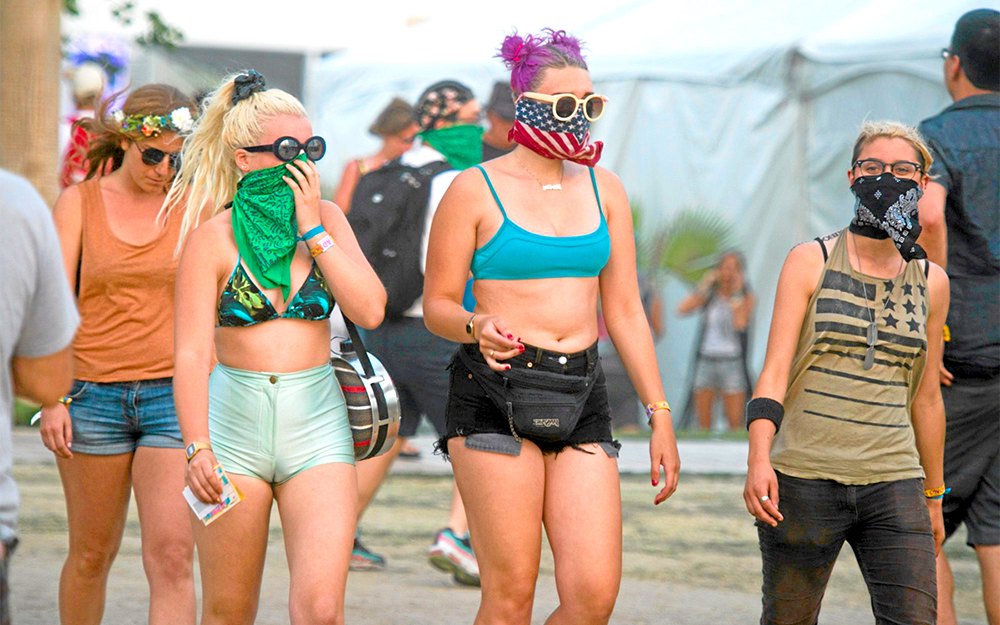
BY DR PETER KADILE
If you’re prepared, the less likely you’ll miss the party due to illness or injury.
- Sun protection
Protecting your skin is very important, so make sure you apply sunscreen at least 30 minutes before you go outside. Dermatologists recommend using a sunscreen with an SPF of 15 or greater, higher SPF if you are lighter or fair skinned. Choose a sunscreen that protects against UVB and UVA radiation. SPF stands for Sun Protection Factor and ranges from 2 to as high as 50. It refers to the sunscreen’s ability to screen or block out the sun’s harmful rays. The number stands for the length of time one can stay in the sun using the sunscreen before burning, compared to when not wearing a sunscreen. For example, if a person uses a sunscreen with an SPF 15, that person can be in the sun 15 times longer than without sunscreen before burning.
Make sure you bring the sunscreen with you so you can reapply. If you are dancing and enjoying the festival in the heat, the sunscreen will sweat off, so follow the directions on the bottle on how frequently you need to reapply.
What if you get a sunburn?
– Apply a cool compress to the burned area
– Take a cool shower or bath
– over the counter anti-inflammatories, such as ibuprofen or naprosyn can help relieve the inflammation and pain
– Application of lotions containing aloe vera help to soothe and moisturize the skin. Some products used specifically for sunburn contain lidocaine, which is an anesthetic and can numb the sunburn pain.
– over the counter 1% hydrocortisone cream may help relieve the pain and itching
- Allergies.
I frequently see patients after they have attended the festivals and they complain of severe allergy symptoms of runny nose, congestion and sneezing which sometimes progress into a sinusitis. I call it the “Coachellafest Crud”. Bring a bandana or a mask to cover your nose and mouth in case it is windy.
The high winds which usually occur during the festivals kick up all sorts of nasty allergens, dust, sand and irritants which can commonly cause itchy, watery eyes, congestion, runny nose, cough, sore throat and sneezing associated with allergic rhinitis. Staying well hydrated, supplementing with vitamin C, vitamin D and omega 3 fish oils can help boost your immune system and help reduce allergy flare ups. Irrigation of the nasal passages with an over the counter Neti pot can help reduce the congestion and runny nose associated with allergy symptoms. Over the counter (OTC) medications, usually antihistamines, can be effective in the prevention and treatment of symptoms, but can have side effects, commonly drowsiness. Make sure you read the labels of the various OTC allergy medications to educate yourself on the possible side effects.
- Hydration
Poor fluid intake, especially in the festival heat, increases one’s chance of dehydration. A person can be dehydrated without feeling thirsty, so it is important to drink water throughout the day and especially if outdoors. A good gauge to assess hydration status is the color of your urine; the clearer your urine the better, dark urine is a sign of poor hydration status. Coffee, soft drinks and alcoholic beverages don’t count as good fluid intake because they actually cause dehydration. Drink water or sports electrolyte beverages.
If you are trying to stay hydrated , you should also never drink from a plastic water bottle that you left in the car. The heat can melt the plastic and the chemicals used to make the bottle could leach into the liquid and introduce toxins into your system.
- Hand Sanitizer
There will be thousands of people at the festivals. Money changing hands, shaking hands, hugging, crowded dancing, mobs of people, etc… Since it will be hard to wash your hands all the time, bring hand sanitizer with you. Hand sanitizers are generally made up of alcohol, glycerin, water and maybe some fragrance added. The alcohol is the main germ fighter. A good hand sanitizer should have an alcohol concentration of at least 60 percent. Hand sanitizer is beneficial if hand washing is unavailable, but it is not as good. Using a hand sanitizer is good in addition to hand washing. Really, the best way to clean your hands is with soap and water. Washing gets rid of most germs and breaks up oils and removes dirt, which can hide bacteria and germs. Hand sanitizer simply works on the surface of the skin, whereas hand washing will get the water and soap into the small cracks and crevices of the skin.










































